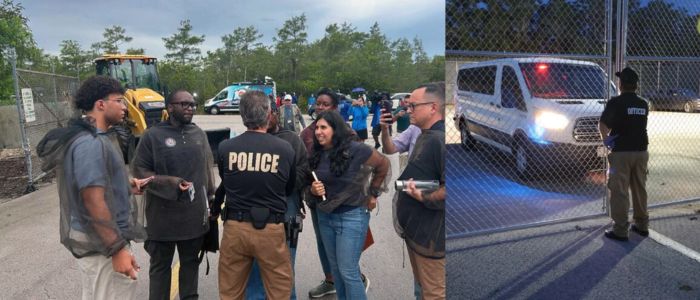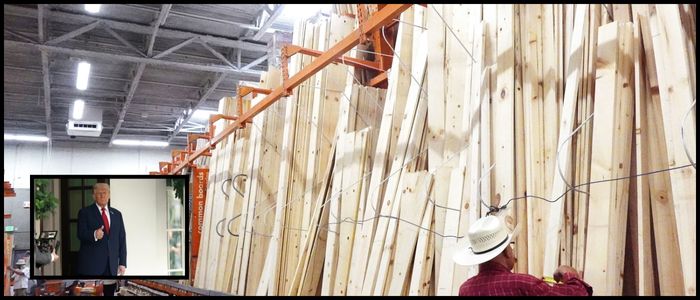There had been concerns about human rights abuses, environmental damage, risk from extreme heat, and a series of flash floods triggered by summer storms.
The law enforcement personnel from several state agencies stopped the lawmakers as soon as they got out of their cars, said Florida state Rep. Anna Eskamani, one of the five legislators who tried the visit.
A general counsel for the Florida Division of Emergency Management, which runs the disaster relief program, cited “safety concerns” for the denial but did not provide a specific reason. Eskamani asked how the detainees could be safe in a facility considered too unsafe for lawmakers. The group wasn’t even allowed to see the outer perimeter of the tent city (the Green Zone, >>below).
The lawmakers released a joint statement citing a Florida law that gives state legislators the ability to inspect and have access to state correctional and county or municipal detention facilities. Labelling the denial a "blatant abuse of power", they accused officials of trying to cover up potential human rights abuses with "no public oversight".
Facility Blasted Over Conditions and Oversight
With about 3,000-bed capacity, the detention facility – called “Alligator Alcatraz” in local media — was erected at the Dade-Collier Training and Transition Airport. The tent city now located on the site has generated environmental and structural concerns amid storms that resulted in flooding and reports of wobbly flooring and walls.
Local media reports from the scene showed pools of water, as well as exposed wires and structures shaking from high winds. Between 0.4 and 1.5 inches of rain fell in less than two hours on Tuesday, just after the former president, Donald Trump, had toured the plant.
Water intrusion was (kept) to a minimum,” said Stephanie Hartman of the Florida Division of Emergency Management, which enlisted the vendors to seal the tent bases that leaked. But members of Congress emphasized that the heat, isolation, and structural vulnerabilities make it crucial to hold oversight now.
The Department of Homeland Security also said it is not directly associated with the building or operation of the facility. The Department of Homeland Security, in a federal court filing, said the agency did not operate, fund, or approve of the center. ICE has had a limited role to ensure compliance with detention standards and has talked with Florida officials about operations.
Two environmental groups have sued to block use of the facility, saying it threatens the well-being of the Everglades ecosystem. Although DHS insisted that Florida is responsible for the facility, it confirmed a $600M detention support grant program through FEMA. Florida has not applied for that money, but it is eligible for reimbursement.
State Advocates for Facility Under Nationwide Scrutiny
Ron DeSantis, the governor of Florida, defended the use of the facility, saying it relieved pressure on Florida jails and law enforcement. He called it “completely self-contained” and he downplayed concerns by saying alligators in the immediate vicinity would discourage escape, saying the equipment was “as safe and secure as you can be.”
The cost of operating the facility for a year would be an estimated $450 million, and Florida would initially cover the cost and seek reimbursement from the federal government. Even though DHS made it clear that it wouldn't be directly involved in such a plan, its Assistant Secretary for Public Affairs did say expanding bed space could be on the table through a partnership with Florida.
And the U.S. military said on Thursday it would send 200 Marines to Florida to assist in ICE operations. The officials did not reveal the specific location and nature of their support, but emphasized their roles would remain non-law enforcement in nature within ICE facilities.
Amid escalating challenges over the treatment of undocumented detainees, the denied access to “Alligator Alcatraz” and the legal fight over it are playing out on the national stage.
“Transparency and oversight are needed to ensure the safety and rights of the people who are trapped in there,” lawmakers said.
Top

Lawmakers Denied Access to Florida Detention Center

A group of Florida Democratic lawmakers was turned away Thursday from a newly created migrant detention facility, dubbed “Alligator Alcatraz.” Their only hours after the first group of detainees was transported to the site, a remote location deep in the Florida Everglades.











